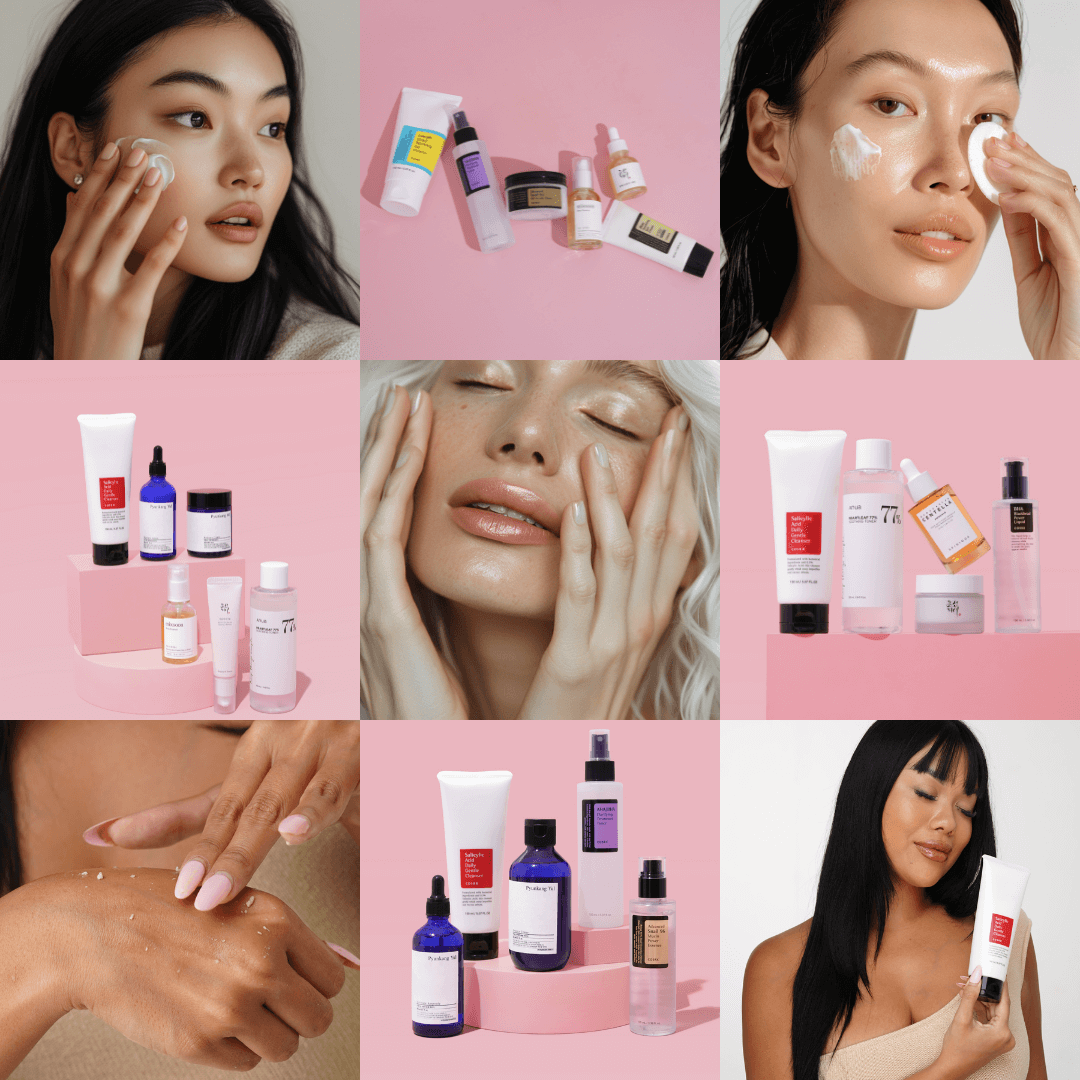Choosing the right Korean skincare products can make all the difference in achieving that glowing, healthy complexion. However, sometimes the products you’re using may not be the best match for your skin. Here are five key signs that your skincare isn’t working for you—and how to adjust your routine to see better results.
1. Your Skin Feels Tight or Dry After Cleansing
One of the first signs that your cleanser isn’t right for you is that your skin feels tight or dry immediately after washing. While a good cleanser should remove dirt and oil, it shouldn’t strip your skin of its natural moisture. If your skin feels dry or uncomfortable, it’s time to switch to a gentle cleanser for dry skin or a moisturizing Korean cleanser. For oily or combination skin, a Korean cleanser for oily skin can help balance sebum without over-drying.
Power Tip: Opt for cleansers that include hydrating ingredients like centella asiatica or hyaluronic acid for extra moisture.
2. You’re Experiencing More Breakouts
If you’ve noticed an increase in breakouts, it might mean that your skincare products are clogging your pores or irritating your skin. This is especially true if you’re using heavy creams that may not suit your skin type. Switch to Korean skincare for acne-prone skin, especially lightweight, non-comedogenic products that allow your skin to breathe. Look for ingredients like tea tree oil or salicylic acid in your Korean acne skincare routine to keep breakouts at bay.
Power Tip: Always patch test new products to avoid irritation, and make sure you’re using the best Korean skincare for acne if breakouts are a concern.
3. Your Skin is Red or Irritated
Redness or irritation is a clear sign that your skin is having a negative reaction to a product. This could be due to harsh ingredients or a product that’s too strong for your skin type. To calm irritation, look for Korean sensitive skin care products with soothing ingredients like green tea or snail mucin. Switching to Korean skincare for sensitive skin will help your skin heal and restore its natural barrier.
Power Tip: Avoid exfoliating too often, especially if your skin is prone to redness or sensitivity.
4. You Have Persistent Oiliness
If your skin is still oily after using skincare products, it could be a sign that your routine isn’t suited for oily skin. Using a Korean skin care routine for oily skin can help regulate oil production without stripping your skin of moisture. Products designed for combination or oily skin, like a Korean toner for oily skin, can balance sebum while keeping your skin hydrated.
Power Tip: Opt for a moisturizer for oily skin to keep your skin hydrated without causing excess oil production.
5. No Improvement in Skin Texture
If you’ve been using the same products for a while but aren’t seeing any improvement in skin texture, it might be time to reconsider your routine. Korean skincare products should help smooth and improve your complexion over time. If you’re not seeing results, switching to products that address specific concerns like enlarged pores or dullness can make a difference. Consider adding a serum for glowing skin or a brightening toner to your routine.
Power Tip: For smoother skin, try incorporating Korean skin care for smaller pores or a rice toner that gently exfoliates and brightens.
Knowing the signs that your skincare routine isn’t working is key to achieving healthy, glowing skin. Whether it’s redness, breakouts, or persistent dryness, these are clear signals to adjust your products. Switch to the best Korean skincare products for your skin type and needs, and you’ll be on your way to a healthier, more radiant complexion in no time.




